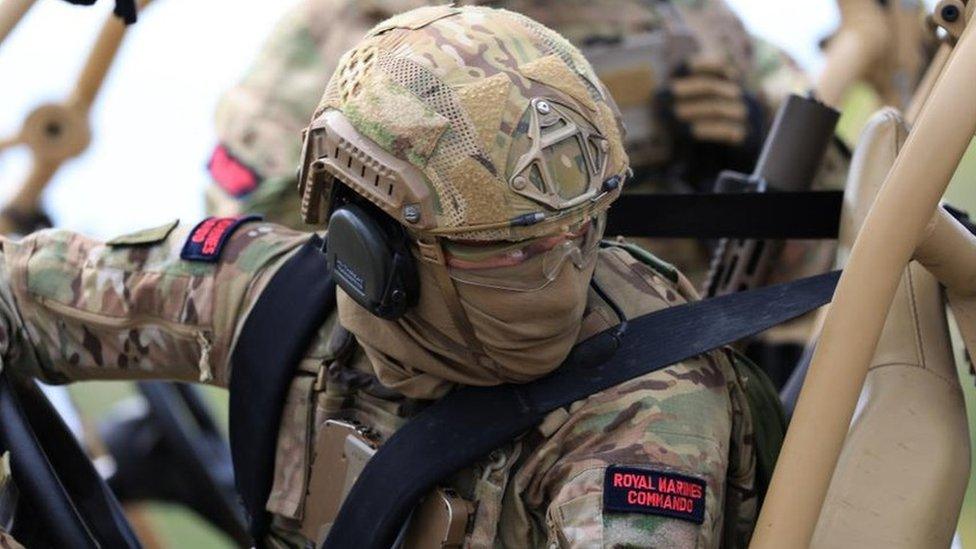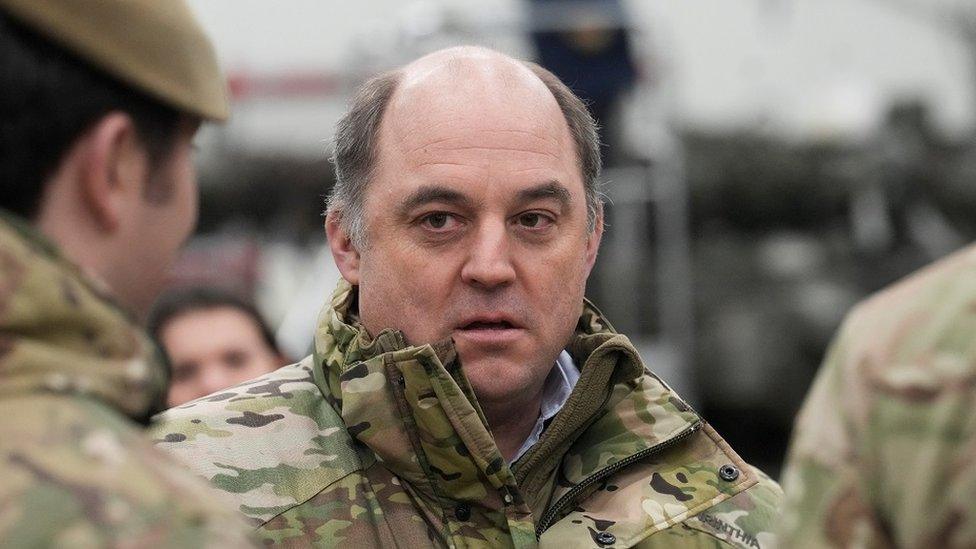Ministers urge government to increase defence spending to 2.5% of GDP
- Published

Two ministers are calling on the government to meet its goal of 2.5% more quickly
Two ministers have publicly urged the government to increase defence spending to above 2.5% of national income.
Anne-Marie Trevelyan and Tom Tugendhat said the UK needed to "lead the way" and invest at a "much greater pace".
Their article, posted on LinkedIn, follows criticism of this week's Budget for failing to boost defence spending.
Delivering the Budget, Chancellor Jeremy Hunt said spending was above 2%, Nato's target, and would rise to 2.5% "as soon as economic conditions allow".
But Ms Trevelyan, a Foreign Office minister, and Mr Tugendhat, the Security Minister, said the global risk posed by countries like Russia and China meant there was no time for delay.
"The sad truth is that the world is no longer benign," they said in the article published on Saturday.
"Protecting ourselves requires investment. And effective investment means that our industrial complex must grow and strengthen at much greater pace than at present.
"We cannot turn on the complex platforms and weapons which ensure military advantage overnight. We must start that growth now, invest at pace to support our allies and stay ahead of our adversaries."
The two ministers also praised former Defence Secretary Ben Wallace and former Prime Minister Boris Johnson for making inroads in boosting defence spending.
Ministers often lobby the chancellor before budgets, sometimes publicly, but it is unusual for them to speak out afterwards.
It is understood that both ministers remain fully supportive of Mr Hunt and government policy to reach 2.5% of gross domestic product "as soon as possible", but they wanted to stress the importance of hitting the target quickly.
The House of Commons' spending watchdog warned on Friday that the gap between the MoD's budget and the cost of the UK's desired military capabilities had risen to £16.9bn - the largest deficit ever - despite an injection of £46.3bn over the next 10 years.
The Public Accounts Committee has also warned the real deficit could be closer to £29bn as some parts of the armed forces only included capabilities that were affordable, rather than all those the government had requested.
Defence Secretary Grant Shapps wrote to Mr Hunt in January calling for a commitment to 2.5% in the Budget.
However, a source close to him said he did not play any part in the LinkedIn article.
The piece was not cleared by Downing Street, either, but a No 10 source said that this was normal for social media posts.
Prime Minister Rishi Sunak told MPs in January that the government would set out a path towards 2.5%, adding that the in the previous spending review there had been a £24bn cash increase - the "largest sustained increase since the end of the Cold War".
- Published8 March 2024

- Published18 February

- Published23 February 2023
